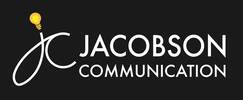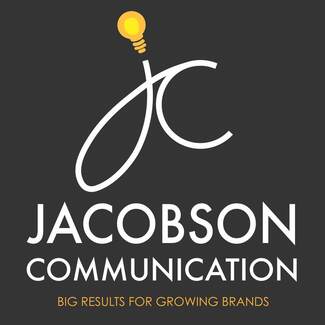|
Your PR Director can mean the difference between success and failure for your startup. They can help you get noticed, which may lead to future funding, lucrative business partnerships, and more customers. Good PR can open doors that were previously closed for your brand. It’s important to hire well. As a PR Professional, I’ve worked with hundreds of startups and heard many stories. I’ve also seen a lot of PR mistakes that I want you to learn from. Here are some of the most common. 1. They Hire Someone From a Big Company or PR Agency Hiring a PR person from a large company is a gamble. I’ve seen several startups boast that their PR Director was from Google or Facebook or even a large PR firm, only to let them go six months later when they realized that person wasn’t able to function without a larger budget and team. Many startups pay top dollar to acquire this new employee, assuming this one person was responsible for their department’s PR success at the previous company. Unfortunately, this person probably had dozens of people on multiple teams responsible for their combined success. Startups need people who can think for themselves and wear many hats. Hiring from a large company is not a guarantee of success for your startup.
2. They Let The Intern Do It Deterred by the cost of hiring a professional, some startups believe they’ll save money if the intern learns how to do their PR (yes, I’ve seen this happen). If your startup is serious about getting regular features in the media, this is not an advisable strategy. Interns typically lack the skills of a qualified PR professional, and they’ll take much longer to get any significant PR traction. If your startup has time to waste, you can try this but it’s not advisable. 3. They Require The Employee To Work On-Site Good PR can be done from anywhere with a good internet connection. When you only hire locally, you’re limiting your workforce. The perfect PR person for you might not even live in your state. Unless your startup or brand only exists in one place, or unless you have another really good reason, there is no logical reason to tether this position to your location. Instead, look for other indicators of future success, such as; is this person fluent in the language of the market we are targeting? Does this person have experience with the market and region we are targeting? Can I use remote work tools and regular virtual meetings to make sure we stay on target? 4. They Only Want A Full-Time In-House Employee, Not a ConsultantDepending on your startup’s needs and growth-stage, your PR Director doesn’t have to be a full-time employee. Some startups who have smaller budgets will be better served hiring a PR consultant part time, as opposed to paying for a salaried employee. Hiring a consultant gives your PR person the option of having additional clients and making a wage more suitable to their skill-set and needs. This lets you have a highly-skilled PR person at a fraction of the cost. As you grow, you may opt for an in-house position, but by then you’ll have a better idea of what works and hopefully a larger budget. 5. They Don’t Offer Competitive Compensation Good PR isn’t cheap. If your company truly needs PR now, good PR is a worthwhile investment. Yet, many startups look for ways to cut costs by lowering compensation in exchange for “perks,” such as shares in their company, free lunches, or additional time off. Some even offer a pay-per-placement commission, (don’t do this, it’s a great way to have news outlets blacklist you permanently). Offering lower compensation means you’re less likely to hire top-level talent. Do your homework. Pay people what they’re worth. This person is going to show your company to the world. Have a compensation offering that reflects the market rate. 6. They Expect Results Too Soon, or Too Late I’ve seen startups that expect results from their PR Directors within the first week and I’ve also seen startups that let half a year go by with only one or two results. Neither of these extremes are healthy. Generally, a skilled PR person should be able to start getting results within the first month of pitching. It’s not because they don’t “know reporters.” It’s because reporters often take time to recognize and get comfortable with the new correlation between your PR Director and your brand. For startups who aren’t already widely known, regular media pickup (weekly or monthly stories) usually takes three to six months of active pitching and multiple stories to establish. 7. They Think A Press Release Is Enough Press releases are for reporters, not the actual public. Publishing a press release does not replace the fact that you need a PR Director. A press release is a great place to house all the important details of your product’s launch. They’re a great way to say, “at this date and time we were here and we did a thing.” They are not great for getting the public to stop what they’re doing and covet your brand. Do not confuse press release impressions with genuine customer engagement. A press release is only a starting point. It needs to be coordinated with a customer-facing blog post, social media engagement, and public statements. A good PR Director can help you do that. The Bottom Line Finding the right PR Director is going to take time. You may have to hire a couple different people until you find a good fit. You may have to adjust the compensation you are offering. But, in the end, it’s worth it to find someone who knows how to show your brand to the world. ABOUT THE AUTHOR Jennifer L. Jacobson is a communications strategist specializing in life-changing PR engagement for startups, nonprofits, and creative brands. Jennifer's clients have been on The View, The Today Show, in TIME magazine's "Best Sites of the Year," FastCompany's "Best Nonprofits," on the front page of USA Today, Popular Science, The New York Times, the Today show, PBS Frontline, and thousands more. Jennifer is also a creative professional who draws on her two decades experience as an entrepreneur, creator, author, and musician to help clients with one-off creative needs such as songwriting, storycraft, world development, and more. For more about her work, visit: jacobsoncommunication.com Comments are closed.
|
Article Categories
All
About the AuthorJennifer is a storyteller who connects big ideas with audiences. She specializes in public relations, brand development, and creative services for startups, theme parks, musicians, authors, nonprofits, and more. From audience awareness to brand development, and positive social change, Jennifer works with clients she believes in and that she believes she can help. Archives
April 2022
|
Branding Resource Center
Get Jennifer's Upcoming BookSnow Tires for Startups: How to Get PR Traction, is a practical guide for startups and growing brands who want to get the most out of their PR. Learn to think like a storyteller and weave your brand into a larger narrative that puts you in the history books. Snow Tires for Startups will help you navigate the world for PR and get the positive attention you need to move your brand forward.
|
“Is my startup ready for PR?" The answer has a lot to do with what your startup is already doing. Find out if you're ready now, if you should wait, or if you should have started PR months ago with this simple quiz.
Read more. 3 Ways Big PR Firms Slow Down StartupsDo big global PR firms work for startups? The siren song of larger, global PR firms are tempting to many, but there are good reasons many startups should avoid them. You can do better than a big firm. Here’s why.
Read more. |
|
Jacobson Communication specializes in public relations, brand development, and creative services for startups, theme parks, musicians, authors, nonprofits, and more. From audience awareness to brand development, and positive social change, you'll be surprised what better communications can do for your brand.
|
Copyright 2025 Jacobson Communication
LAND ACKNOWLEDGEMENT
Acknowledgement to the southern Lushootseed-speaking Coast Salish Indigenous Peoples whose land I live and work on.
The Duwamish People
This land also includes the traditional land and waterways of the first people of Seattle, the Duwamish People of past and present. It is with honor and gratitude to the land itself, the plants, animals, and the Duwamish Tribe that I practice my work.
The Puyallup Tribe
This land is also on and adjacent to the traditional homelands and waterways of the Puyallup Tribe. The Puyallup people have lived on and stewarded these lands since the beginning of time and continue to do so today. I recognize that this land acknowledgement is one small step toward true allyship, and I commit to uplifting the voices, experiences, and histories of the Indigenous people of this land and beyond.
To learn more about the Puyallup Tribal Language program, visit:
https://www.puyalluptriballanguage.org
The Awaswas People
I would not be the person I am today without growing up in what is now called the Bay Area. For the Awaswas-speaking Uypi Tribe, the Amah Mutsun Tribal Band, current and future generations of Indigenous Peoples across the Bay Area. I acknowledge and honor the eight tribes known as the Awaswas People, who were the original people and caretakers of much of what is now known as the South Bay Area. The Awaswas had, since the dawn of time, worked with and cultivated the area so it had a variety and abundance of animals and plants. Their ways and practices maintained balance and biodiversity that the area has not known since colonization. The Spanish displaced, enacted violence against, enslaved, and forced the Awaswas People and other Indigenous Peoples of the Bay Area into the mission system, taking the Awaswas people to missions Santa Cruz and San Juan Bautista. Some Indigenous peoples of the area were able to escape to the south and into what is now Mexico. Some of those who escaped had to deny their identity and say they were Mexican in order to survive. Much of this history is still being discovered. Today, the Amah Mutsun Tribal Band, composed of the descendants of Indigenous people taken to missions Santa Cruz and San Juan Bautista during Spanish the Spanish Colonization of the Central Coast is working hard to restore traditional stewardship practices on these lands and heal from historical trauma.
To learn more about the Amah Mutsun Land Trust, click here.
The Duwamish People
This land also includes the traditional land and waterways of the first people of Seattle, the Duwamish People of past and present. It is with honor and gratitude to the land itself, the plants, animals, and the Duwamish Tribe that I practice my work.
The Puyallup Tribe
This land is also on and adjacent to the traditional homelands and waterways of the Puyallup Tribe. The Puyallup people have lived on and stewarded these lands since the beginning of time and continue to do so today. I recognize that this land acknowledgement is one small step toward true allyship, and I commit to uplifting the voices, experiences, and histories of the Indigenous people of this land and beyond.
To learn more about the Puyallup Tribal Language program, visit:
https://www.puyalluptriballanguage.org
The Awaswas People
I would not be the person I am today without growing up in what is now called the Bay Area. For the Awaswas-speaking Uypi Tribe, the Amah Mutsun Tribal Band, current and future generations of Indigenous Peoples across the Bay Area. I acknowledge and honor the eight tribes known as the Awaswas People, who were the original people and caretakers of much of what is now known as the South Bay Area. The Awaswas had, since the dawn of time, worked with and cultivated the area so it had a variety and abundance of animals and plants. Their ways and practices maintained balance and biodiversity that the area has not known since colonization. The Spanish displaced, enacted violence against, enslaved, and forced the Awaswas People and other Indigenous Peoples of the Bay Area into the mission system, taking the Awaswas people to missions Santa Cruz and San Juan Bautista. Some Indigenous peoples of the area were able to escape to the south and into what is now Mexico. Some of those who escaped had to deny their identity and say they were Mexican in order to survive. Much of this history is still being discovered. Today, the Amah Mutsun Tribal Band, composed of the descendants of Indigenous people taken to missions Santa Cruz and San Juan Bautista during Spanish the Spanish Colonization of the Central Coast is working hard to restore traditional stewardship practices on these lands and heal from historical trauma.
To learn more about the Amah Mutsun Land Trust, click here.



 RSS Feed
RSS Feed



